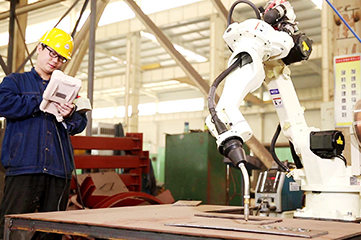Vertical Thermal Oil Boilers for Efficient Heating Solutions in Industrial Applications
Vertical Thermal Oil Boiler An Overview
A vertical thermal oil boiler is an essential piece of equipment in various industries that require efficient heating solutions. Unlike traditional steam boilers, thermal oil boilers utilize thermal oil as the heat transfer medium, providing several advantages in terms of heat transfer efficiency, temperature control, and safety. This article will explore the operational principles, benefits, applications, and maintenance considerations of vertical thermal oil boilers.
Operational Principles
Vertical thermal oil boilers operate by circulating thermal oil through a series of heating elements. The oil absorbs heat from the combustion of fuel—such as natural gas, oil, or biomass—and transfers it to the required processes. The vertical design allows for a compact footprint, making these boilers suitable for facilities with limited space. The oil circulates continuously in a closed loop system, which minimizes heat loss and improves efficiency.
The heating medium's temperature can reach as high as 400°C (752°F) while remaining under pressure, eliminating the risks associated with high-pressure steam systems. The ability to control the temperature precisely is a significant advantage, particularly for processes that require stable thermal conditions.
Benefits of Vertical Thermal Oil Boilers
1. High Efficiency Vertical thermal oil boilers have high thermal efficiency compared to conventional steam boilers. The use of thermal oil allows for faster heat transfer and reduces energy consumption.
2. Versatile Applications These boilers can be utilized in various industries, including chemical processing, food production, pharmaceuticals, and textiles, where precise temperature control is essential.
3. Compact Design The vertical construction occupies less floor space compared to horizontal boilers, which is particularly beneficial in confined areas. This space-saving design also simplifies installation and maintenance.
4. Safety Since thermal oil systems operate at lower pressures than steam systems, they present a reduced risk of explosions or leaks. The thermal oil is also less corrosive, enhancing the boiler's longevity and reliability.
vertical thermal oil boiler

5. Environmentally Friendly Many vertical thermal oil boilers are designed to burn cleaner fuels or utilize renewable energy sources, helping to reduce their carbon footprint and comply with environmental regulations.
Applications
Vertical thermal oil boilers find applications across a wide range of industries. In the chemical industry, they are used for process heating, such as distillation and polymerization processes. The food industry relies on these boilers for cooking, drying, and pasteurization. Similarly, in the textile industry, they provide the necessary heat for dyeing and finishing processes.
In the petrochemical sector, vertical thermal oil boilers facilitate the heating of crude oil and other products, enhancing flow and processing efficiency. Furthermore, they are often employed in plant heating, where they provide hot oil for space heating or other auxiliary systems.
Maintenance Considerations
Though vertical thermal oil boilers are designed for durability and efficiency, regular maintenance is essential to ensure optimal performance and safety. Key maintenance tasks include
- Routine Inspections Regularly inspect the system for any signs of leaks, corrosion, or wear that could impact performance. - Oil Quality Monitoring Check the thermal oil's condition, including viscosity and contamination levels, to prevent malfunctions and extend the life of the boiler. - Cleaning Periodically clean the heat exchangers and other components to maintain heat transfer efficiency and prevent fouling. - System Testing Conduct timely tests on safety systems, pressure relief valves, and other critical components to ensure proper functionality.
Conclusion
Vertical thermal oil boilers represent a sophisticated and efficient solution for various industrial heating needs. Their compact design, high efficiency, and versatile applications make them an attractive choice for businesses striving to enhance productivity while minimizing environmental impact. As industries continue to evolve and seek innovative technology, vertical thermal oil boilers will undoubtedly play a vital role in shaping the future of thermal energy management.
-
High-Efficiency Hotel Water Boiler Systems Exporters & PricingNewsMay.29,2025
-
Oil Heater for Hot Press Machine High-Efficiency & Durable SupplierNewsMay.29,2025
-
Chain Grate Steam Boiler Exporters Competitive Pricelist & SolutionsNewsMay.29,2025
-
Steam Boiler for Beer Plant High-Efficiency Industrial Solutions SupplierNewsMay.29,2025
-
Premium Hot Water Boilers for Tea Fast Heating & Energy-EfficientNewsMay.29,2025
-
Waste Heat Boiler Solutions Top Manufacturers & Global ExportersNewsMay.28,2025

